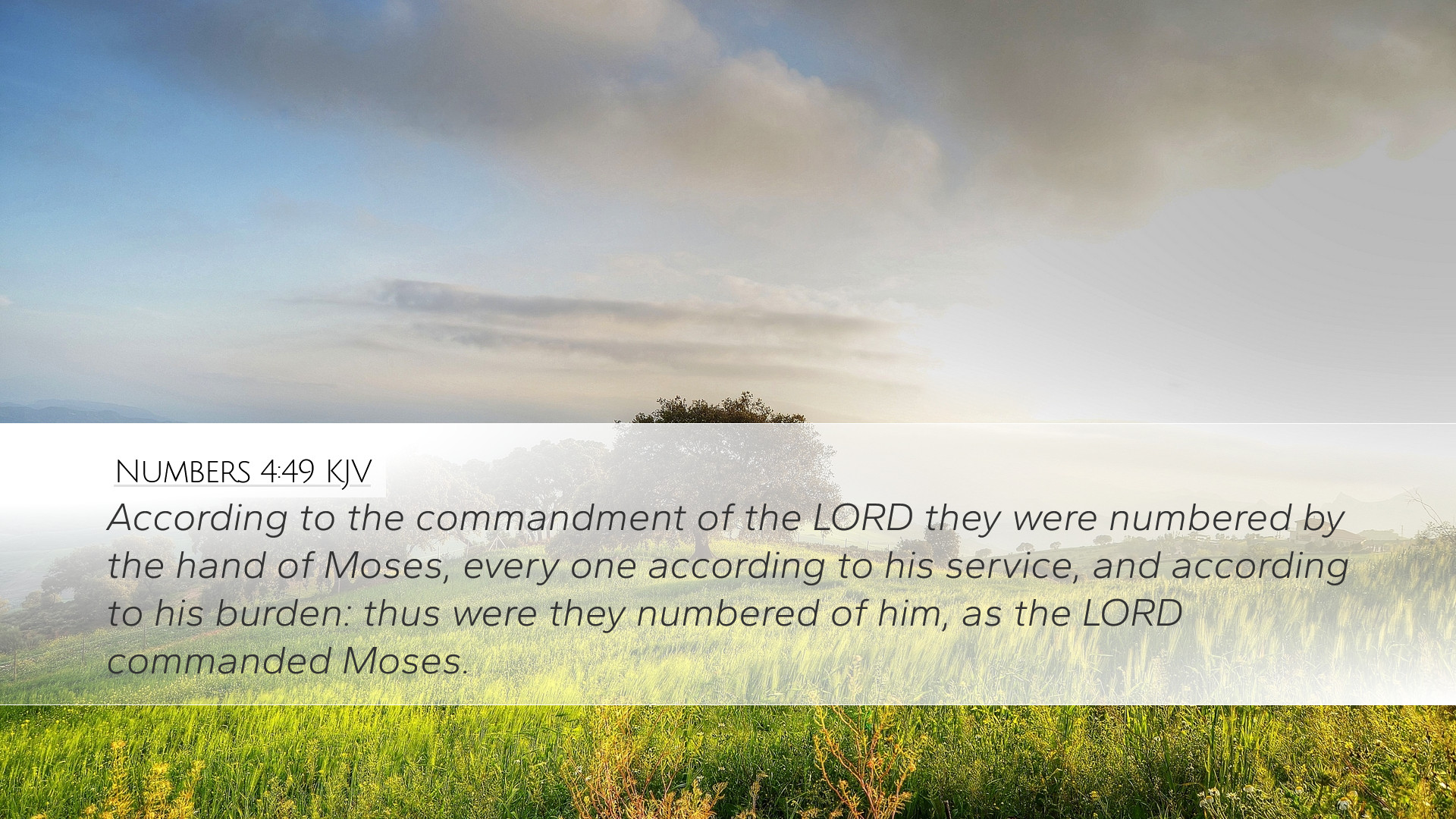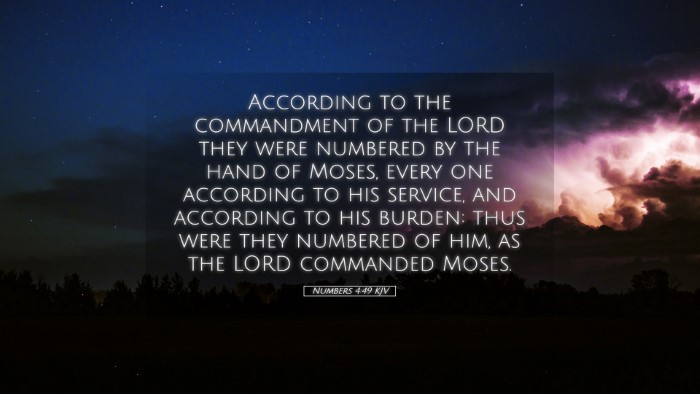Bible Commentary on Numbers 4:49
Numbers 4:49 states:
"According to the commandment of the LORD they were numbered by the hand of Moses, every one according to his service and according to his burden: thus were they numbered of him, as the LORD commanded Moses."
This verse concludes a significant segment of the Book of Numbers, focusing on the organization of the Levitical priests and their respective responsibilities concerning the service of the Tabernacle. Here, we see the adherence to divine command in the structuring of the community of faith, a theme prevalent throughout scripture.
Overview of Interpretations
-
Divine Order and Structure
As noted by Matthew Henry, the meticulous numbering of the Levites reflects God's desire for order within His sanctuary. The approach taken by Moses indicates a systematic arrangement that serves as a model for the church today, emphasizing that every member has a role according to their gifts. This idea is further reinforced by the strong organizational leadership required from Moses as he fulfills God’s command.
-
Individual Responsibility
Albert Barnes draws attention to the individual responsibility of each Levite. Each member was accounted for based on their service and burden. This teaches modern readers the importance of recognizing individual roles in ministry, suggesting that every Christian is called to serve in accordance with their God-given abilities and responsibilities.
-
Role of Moses as a Mediator
Adam Clarke emphasizes the role of Moses as a mediator between God and the people. He administered the counting and assignment of responsibilities which reflects a divine pattern for attaining communal harmony and efficiency in worship. The necessity for a mediator presages the ultimate mediation of Christ in the New Testament, highlighting the continuity of God's redemptive narrative.
Theological Insights
Theological implications of Numbers 4:49 are profound. The Lord’s specific directions for the numbering and the assignment of duties symbolize God’s sovereign control over His people. It implicitly calls for an understanding that the church functions best when every member is aware and active in their roles as part of a greater whole.
Furthermore, the acknowledgment of burdens and services serves as a reminder of the burden-bearing ministry encouraged in Galatians 6:2. This resonates with contemporary Christian community dynamics, inviting believers to recognize that their contributions—whether small or significant—are integral to the functioning and vitality of the church.
Practical Applications
-
Encouraging Active Involvement
Churches today ought to foster an environment as described in this passage, where every member’s service is identified and utilized. Leaders should take guidance from Moses and strive to ensure that every individual understands their unique contributions to the life of the church.
-
Understanding God’s Call
Believers are encouraged to seek God’s direction in identifying their unique “burdens.” Just as the Levites were recognized for their service, today’s believers should be proactive in fulfilling the calling that God has placed upon them, responding to His command with obedience and diligence.
-
Unity in Diversity
The enumeration of different roles within the Levitical priesthood teaches the body of Christ about unity in diversity. Understanding that all roles contribute to one mission, churches should celebrate different gifts and ministries while promoting overall unity in purpose and doctrine.
Conclusion
Numbers 4:49 captures a pivotal moment of organization within the Israelite community that provides valuable insights for contemporary believers. The careful counting and categorization of the Levites echo the importance of structure, individual responsibility, and harmonious service within God's church. Drawing from the theological reflections of noted commentators, we can glean a vision that elevates the role of each church member and reinforces the significance of adhering to God's commands in all aspects of ministry and community life.


